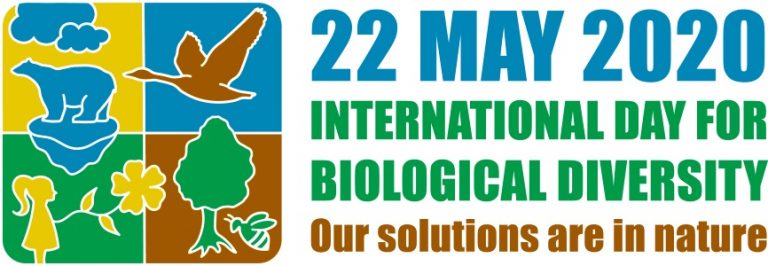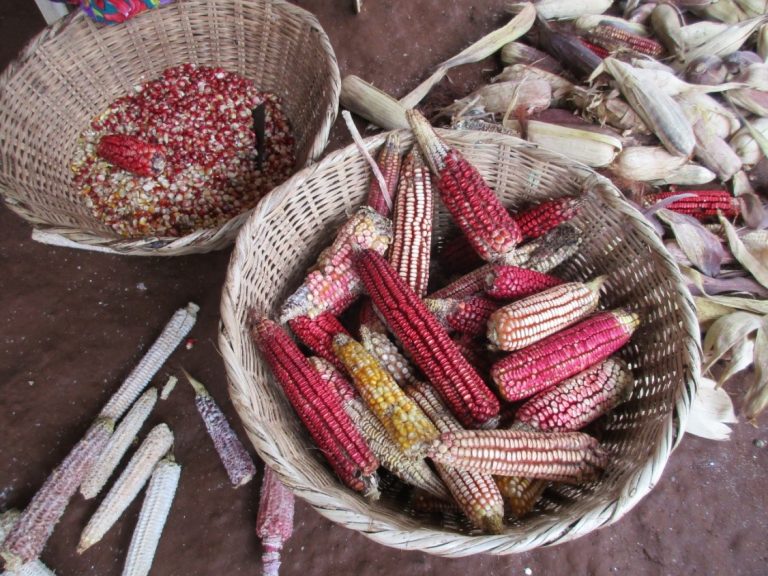IPSI Newsletter

TOPIPSI NewsletterIPSI Newsletter, April 2020
IPSI Newsletter, April 2020
2020.04.29
Dear IPSI members and friends,
Greetings from the IPSI Secretariat in Tokyo, Japan. IPSI and its members continue to stay active in a wide variety of projects and activities related to landscape and seascape approaches towards “societies in harmony with nature”.
Much of our work is currently on hold due to the COVID-19 pandemic, and this month’s newsletter contains a special message from the IPSI Secretariat on that topic. Still, work goes on despite the difficulties, and we are pleased to share a report of a recent online session with contributions from the IPSI Secretariat, an announcement of a new publication detailing use of the “Indicators of Resilience in Socio-ecological Production Landscapes and Seascapes”, and the announcement of this year’s International Day for Biological Diversity, as well as a recent case study from Fundación Semillas de Vida, A.C., based in Mexico. We hope this will serve as inspiring reading during this difficult time.
As always, please feel free to contact us to submit any new case studies or other information about your activities, or if you have any questions or comments.
IPSI Secretariat
IPSI in the time of COVID-19
The current coronavirus pandemic has had a major impact on all of our work and personal lives this year. We at the IPSI Secretariat extend our best wishes to all of our readers in this difficult time. It is our greatest hope that you have not been too deeply affected personally. For those have been, please know you are in our minds, and that we will do anything in our power to offer support.
We are now well into our second month of working remotely here in Tokyo, with no definite end in sight. The good news is that we were early to this “social distancing” situation and it seems to be paying off, as so far none of our staff are known to have contracted the virus. We urge all of you to do the same and follow public guidance as much as is possible in your own situation. Maintain distance, wash your hands, stay home, wear a mask as appropriate – it works! Together we can “flatten the curve” and keep our loved ones safe!
That said, we are also looking towards the time beyond the pandemic. Our planned schedule for contributions to the post-2020 global biodiversity framework has been delayed as the world is on an enforced pause, so what better time to think deeply about what kind of world we want post-2020 and post-pandemic? It has already been pointed out many times that a “business as usual” approach to biodiversity cannot achieve ambitious targets, and that “transformative change” is needed post-2020. So, can we expect that a “business as usual” approach to recovery will prevent future pandemics and keep our planet safe, sustainable and resilient? Or can the world work together to learn our lessons from this pandemic, and emerge stronger than before?
The idea of transformative change means, in part, bringing in wider societal, cultural, economic, and other elements to mainstream biodiversity across all sectors of society. Mirroring this, the COVID-19 pandemic stems not only from a simple biological exchange, but from a global societal, cultural, and economic system that results in unsustainable use of biodiversity, destruction of functioning ecosystems at an unprecedented rate, and increasing reliance on unsustainable production practices and supply chains. The lack of resilience in such a system is brought into focus by the current crisis. The question is what we can do to improve it.
As readers and those familiar with IPSI’s work know, a landscape approach is based on bringing together all stakeholders across society to create social-ecological systems that are sustainable and resilient in the long term. IPSI case studies demonstrate that where landscapes and seascapes are responsibly managed and true “socio-ecological production landscapes and seascapes” are achieved, the natural environment, human communities, and ecosystem services are more resilient and “in harmony with nature” – with all the benefits for humans and nature that entails. This is exactly the kind of transformative change that is needed for the world to emerge better from this pandemic, and it could be one key element for global recovery.
In the short term, all of us need to focus on emergency measures to keep us safe. But in the longer term, we at the IPSI Secretariat will continue our efforts in working towards sustainable landscapes and seascapes, and we ask for your continued support and cooperation. IPSI has always been a strong community, and the need for community is greater now than ever. Likewise, the importance of IPSI’s vision – “societies in harmony with nature” – has never been more obvious.
Please keep yourselve safe, and keep in touch – with us and with all of the important people in your life. We will get through this together.
IPSI Secretariat

Comparative & International Education Society (CIES) Annual Conference Session
The annual Comparative & International Education Society (CIES) Annual Conference was moved online this year due to the COVID-19 situation, but a virtual session was still held with contributions from staff members of the IPSI Secretariat. The session was held on 8 April 2020, organized by UNU-IAS jointly with UNESCO Bangkok and UNESCO Institute for Lifelong Learning. In the session, IPSI Secretariat Director Hiroaki Takiguchi focused on a multi-stakeholder approaches, particularly related to Education for Sustainable Development (ESD), and Research Fellow Evonne Yiu discussed the Satoyama Initiative for community-based learning and action for biodiversity conservation, revitalizing and conserving human-influenced socio-ecological production landscapes and seascapes (SEPLS).
For more information, please see the write-up on the UNU-IAS website here.
New Publication: Resilience Assessment Workshops: A Biocultural Approach to Conservation Management of a Rural Landscape in Taiwan
A new article recently appeared in the journal Sustainability, written by colleagues at IPSI member National Dong Hwa University in Chinese Taipei, and covering a lot of material relevant to IPSI and particularly the “Indicators of Resilience in Socio-ecological Production Landscapes and Seascapes” developed through IPSI collaborative activities.
According to the article abstract, “Local and indigenous communities play a crucial role in stewardship of biodiversity worldwide. Assessment of resilience in socio-ecological production landscapes and seascapes (SEPLS) is an essential prerequisite for sustainable human–nature interactions in the area. This work examines application of resilience assessment workshops (RAWs) as a biocultural approach to conservation management… Results show that the communities’ primary issues of concern and adjustments to the action plan are related to biodiversity-based livelihoods, transfer of traditional knowledge, and sustainable use of common resources. The study concludes that this approach has a high potential to help facilitate nature-based solutions for human well-being and biodiversity benefits in Xinshe SEPLS.”
Readers are encouraged to read the whole article, as it contains a great deal of information that should be of interest to anyone working with issues related to IPSI. The article is available on the Sustainability website here.

International Day for Biological Diversity, 22 May 2020
This year’s International Day for Biological Diversity has been announced, and the theme this time is “Our Solutions are in Nature”. All events will be held online for the first time, but the CBD Secretariat is soliciting videos and other materials from those working with biodiversity around the world. This will be a good chance for all of us to consider the importance of biodiversity and do what we can to raise awareness and engagement in the international community. Readers are encouraged to get in touch with the IPSI Secretariat and let us know about any plans for activities to celebrate.
More information is available on the CBD website here.

Recent Case Study: Fundación Semillas de Vida, A.C.
The IPSI Secretariat recently received a case study from partner organization Fundación Semillas de Vida, A.C., based in Mexico.
According to Semillas de Vida in the case study, “In Mexico, maize is staple food and a central crop which dominates all landscapes. Agriculture and a whole civilization were constructed around this crop. Maize’s cultural importance is highly relevant to understand the indigenous people’s worldview and relationship with nature. In Mexico, knowledge about agriculture has been developed around maize, heightened by the crop’s especially great capacity to adapt to different kinds of climates around the planet. Semillas de Vida, in collaboration with local communities, as well as authorities, students and researchers from the Intercultural University of Veracruz, gained experience in and studied maize diversity, use and application. We also learned of the small-scale farmers’ knowledge concerning diversity and adaptation to climate change. Henceforth, we were able to understand how stakeholders in the SEPL have different visions of the landscape and its resources as well as their usage priorities and perceptions of value. Samples were collected and characterization of native maize performed, analyzed by their pigments and association to specific uses.”
This case study was originally published in the Satoyama Initiative Thematic Review vol. 5. For the full case study, please see either the volume or the full write-up of the case study on the IPSI website here.
Contact
Please be sure to let the Secretariat know if there are any changes in your e-mail address or contact information.
Secretariat of the International Partnership for the Satoyama Initiative
United Nations University Institute for the Advanced Study of Sustainability (UNU-IAS)
5–53–70 Jingumae
Shibuya-ku, Tokyo 150-8925
Japan
Tel: +81 3-5467-1212
Fax: +81 3-3499-2828
Email: isi@unu.edu
If you have been forwarded this newsletter and would like to SUBSCRIBE, you can do so on the IPSI website here.


